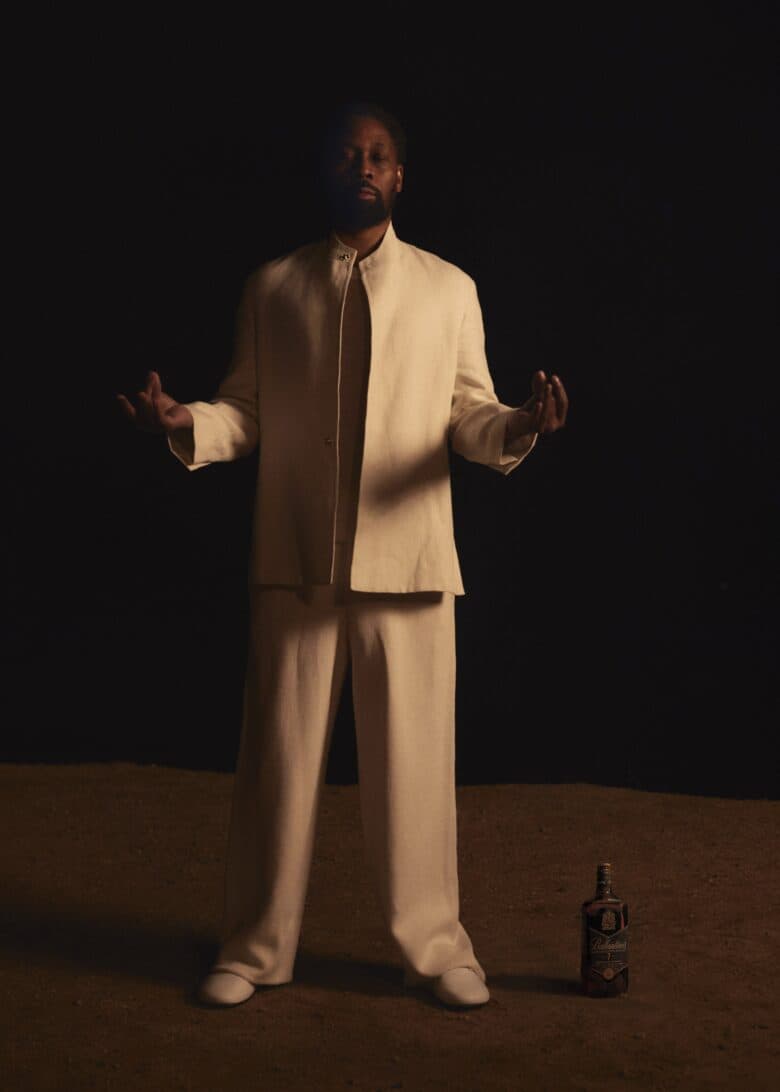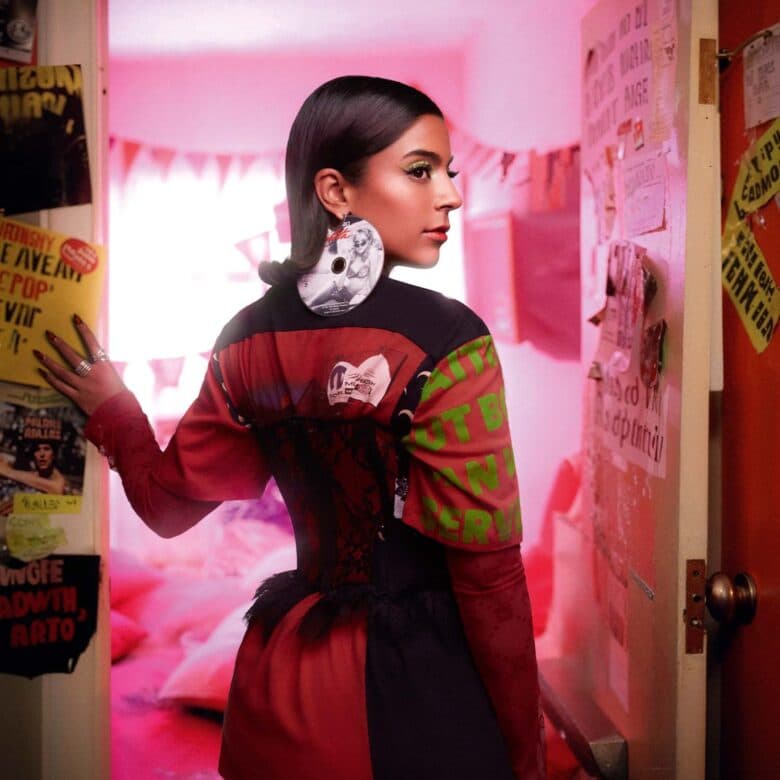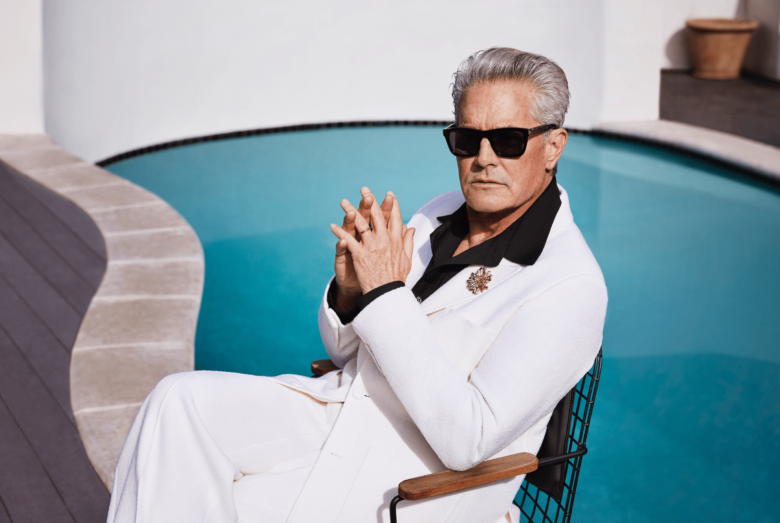Simran Randhawa: “I think there are things I need to do in my life in order to make me feel connected to my culture”

- PhotographerSonali Ohrie
- Stylist Gemma Baguley
- WriterNimi Raja
Being a South Asian Brit in your early forties is a reckoning moment. There’s something about reaching the fourth floor… You unshackle yourself from the stereotypes, expecta- tions and biases that come with who you are: where people think you’re from and, importantly, where people think you’re really from. Born of one culture and into another, we live in a liminal space, continually finding ourselves, piecing together our identity by exploring our heritage with our present, feeling like we have to continually fight the fight of what being a South Asian Brit means. Until we don’t. Until we just live our lives on our own terms. That’s where we’re most at home.
It may have taken me until my forties, but there are trailblazers out there right now who are on their own journey, living the lives they want to live, and burning a path that creates a lasting example. Ultimately, being South Asian British doesn’t define us, nor does the plight of being one – but by living authentically, by using the power of creativity, by using our voice, the narrative is changing every day.

Simran Randhawa
Writer, speaker and digital creator
Nimi Raja: How would you describe your career so far?
Simran Randhawa: Where I aspire to be is like a multi-hyphenate. And I think that I’m still trying to add [skills] to my repertoire to get there. I think that’s how I would probably describe it. Using creativity and storytelling to make stuff happen. I remember being a teenager, being in high school and not knowing what I wanted to do. All I knew is I wanted to be working on different things at any given time.
NR: Have you found it hard to get into the stuff that you want to do?
SR: Yeah. I never had anybody to model what a creative career looks like. I come from a very working-class, diverse part of London, where all the aspirations were stable careers. I’ve never had anybody to hold my hand – there has been a lot of figuring out along the way. When I was 17, I got scouted to model and obviously my mum came with me to the meeting, but we just didn’t know what we should be looking for or how to approach those conversations. The creative industry was very elusive to me.
NR: Do you think that has changed? For better or for worse…
SR: I feel like it was easier and now it has [regressed]. There was a point where it was really accessible with publications like gal-dem. Anybody could write or get involved. I think there’s a lack of accessibility now and also a lack of physical spaces for people to congregate.
NR: Do you feel at home in yourself?
SR: I definitely have learnt to identify the aspect of my identity that makes me feel the most at home, choosing relationships and friendships that also align with that feeling of home. I think there are things that I need to do in my life in order to make me feel connected to my culture or my religion. And in turn, those things make me feel connected to myself and more at home in myself because I feel like I get a deeper understanding of where I fit in the world. That could be anything from going back home to Malaysia and seeing my family there. It’s such a niche, specific cultural intersection of being Punjabi but also Malaysian. I feel like they’re probably the only people who really get it. It’s about being seen. Being around them I feel so seen. In my friendship group with my girls, we’re all girls from London, so that’s another aspect of being seen. If I go to the temple, that’s another aspect of where I can connect with my grandparents and language. There are so many different facets to it.

NR: Do you ever feel as though you’re mismatched or like a misfit?
SR: I think I used to, but not any more. I had a moment that was very profound for me. My therapist kept saying, “It’s one thing to know something in your head, but then when you know it in your body it’s different.” And you realise that nobody has an easy life. Nobody. You realise that your experience isn’t out of the norm because everybody’s going through something in their own way. When I really realised that, I released a lot of comparisons or judgment or jealousy.
NR: What do you hope for the generations to come, whether they’re South Asian or any culture-facing person?
SR: Unashamed freedom and expression… My answer would be just pure, deep self-belief and self-esteem. There are so many external things in this world that tell you not to have it, but I think that once you have that playful freedom, and self-belief, I really believe that you take on the world differently and you approach things differently and you have a different confidence about you.
NR: A lot of South Asian community issues come from within the community as well. Do you think that there’s been a generational shift in how the community accepts difference and, for example, people who choose not to get married or choose not to have children or are in same-sex relationships and that kind of thing?
SR: I think that’s a hard one because I feel like, on an individual basis, yes. But sometimes I feel like, on a wider basis, no. I don’t know if that’s just because I surround myself with like-minded people who are an echo chamber or whatever. But I think it’s two things – there is still a prevalence of very conservative views across South Asians. I mean, look at Rishi Sunak or Priti Patel. I think as a society, there’s been a shift towards more right-wing thinking as a whole. I think that we were making so many steps forward, then, as a whole, society has regressed. But so many people I know are so much more accepting. Even my parents are so much more accepting than they might have been 15 years ago. At the same time, I don’t think that we are where we could be or where we should be. I don’t think that’s just purely a South Asian cultural problem. I think that it’s also reflective of everything else that’s going on.

- Make-up ArtistNency
- Hair StylistTom Arnett using Babyliss and L’oréal tecni.ART
- Movement DirectorCharlotte Dear
- Talent CurationNimi Raja
- Photography AssistantsNick Collins, Andrew Goss and Rory Thomas
- EditorsDyan Jong, Jared Tinetti and Zara Staples
- RetouchingDyan Jong
- Styling AssistantMiranda Mikkola
- Production AssistantAbby Rothwell




